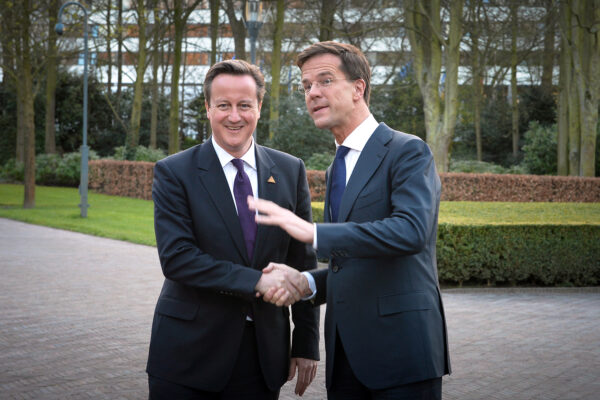
Brexit and a reinvigorated Franco-German partnership have caused the Dutch to seek a new role for themselves in Europe.
For years, the trading nation could rely on the United Kingdom to provide a counterweight to the Mediterranean bloc and its protectionist tendencies. Now the fear in The Hague is that Britain’s exit from the EU will lead to a renewed focus on political, as opposed to economic, integration.
“We should be careful with statements saying that populism has ended,” Mark Rutte, the Dutch prime minister, recently admonished his colleagues in Brussels.
His own reelection in March and the election of Emmanuel Macron in France have been hailed as setbacks for the nativist right.
But the anti-EU Freedom Party still placed second in the Dutch election while Marine Le Pen won twice the number of votes her father did when he qualified for the French presidential runoff in 2002.
Dependence on Germany
Rutte, who has led continental Europe’s fifth largest economy since 2010, found a partner for liberal EU reform in the former British prime minister, David Cameron.
Both argued for a less intrusive Europe and less red tape in favor of trade deals and completing the single market in services.
A dependence on Germany — the Netherlands exports more to Germany alone than to Britain, France and Italy combined — makes the Dutch reluctant to challenge Berlin. That is why they were keen to draw the British into the EU in the first place. Better to have them agitate against proposals that threaten to go too far, like Cameron did against the banking union, and than join watered-down versions of them.
On their own, the Dutch could not change German minds. Rutte’s hope is that an informal alliance of liberal-minded states, straddling the North and Baltic Seas, can.
Blocking minority
At a summit in The Hague, he told the leaders of the Baltic, Benelux and Nordic countries they all must “adapt to a European Union without our British partner at the table.”
The prime ministers of Belgium, the Netherlands and Luxembourg earlier met with their four Central European counterparts in Warsaw.
All are wary that the balance of power in Europe might shift in favor of the more integrationist member states.
France, Germany, Italy and Spain have 75 percent of Europe’s population between them, which means that — once Britain is out — they could more easily outvote smaller nations.
To block a qualified majority in the European Council, dissidents need to be comprised of at least thirteen states or represent 35 percent of the European population.
Belgium, the Czech Republic, Denmark, Estonia, Finland, Hungary, the Netherlands, Poland, Latvia, Lithuania, Luxembourg, Slovakia and Sweden have only 24 percent of Europe’s population. But they are thirteen, which means that, while they could not force through a proposal on their own, they can block one.
There is no margin for error, though. If any of the thirteen defect, the proposal passes anyway.
Far from united
Little unites the thirteen so far other than a fear of being overshadowed in the Europe of Emmanuel Macron and Angela Merkel.
Many Central Europeans think Germany’s and Sweden’s pro-refugee stance is naive. The Balts fear Russian aggression; Hungary’s Viktor Orbán considers Vladimir Putin a role-model. The liberal Dutch regard Hungarian and Polish attacks on the rule of law in apprehension.
In Warsaw, Rutte took the Czechs, Hungarians and Poles to task for refusing to help Europe shelter asylum seekers.
The European Commission has threatened the three with sanctions for not honoring an immigration deal that was passed over their objections in 2015 using qualified-majority voting.
Rutte also censured the ruling Polish party, Law and Justice, for attempting to subjugate the Constitutional Court to its will.
“Poland has a democratic rule of law with a separation of powers, just like the Netherlands,” he said. “It is important to prevent one of those powers from becoming too powerful.”
That’s just the sort of lecture Poland’s hypersensitive leaders may remember the next time the Dutch come begging for their support.
